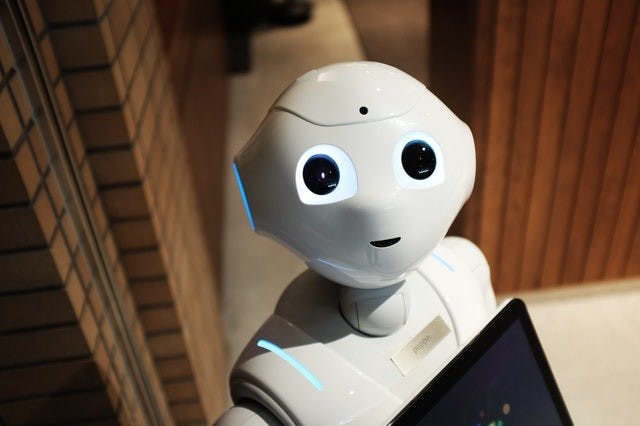As a Recruiter and a human being, I do not have the ability to know the future of work. As amazing as that would be on a resume’, I can at least influence workforce data and analytics to predict future progress. It is important to recognize that technology impacts the gap of business performance potential and to end the 2020 year with a clear vision.
AI transformations are occurring daily in the Recruitment industry, resulting in a greater urgency for Recruiting firms to transform their organization. This transformation allows a more agile workforce ecosystem to survive disruption. What does a workforce ecosystem mean?
A workforce ecosystem is the community or environment of the workforce that is now largely inhabited by AI. Recruitment companies are restructuring their roles around new technology to impact performance. The internal and external design of the transformation is key to combat massive business disruption. Companies must determine the business’s current needs, share challenges, and create an aligned vision of transformation opportunities with an execution plan.
Before determining a design, the company must determine what skills are relevant in the next 2-5 years. Determining relevant recruitment skills is crucial to respond to the Pandemic impact strategically. This is accomplished through workforce data trends and analyzing talent shortage for today but accurately predicting the future workforce’s needs.
Employee development remains crucial in allowing exponential learning and adaptation to AI platforms.
How do special tasks help an employee gain experience or skills to prepare for their next role, and does anything change in their current role? In recruitment, the job functions will remain the same, but the skills needed within the job will change. AI operations will require employees to possess a higher technical aptitude and develop strategies based on analytics. As Recruiters embrace the AI platform, they must be advocates for developing innovative solutions to help deliver business goals and exceptional candidate experience.
A well-developed AI platform will create a productive business service that allows Recruiters to focus on less manual tasks such as prequalification screens, interview scheduling, and reporting. This will allow recruiters to become more proactive and strategic partners with their clients, creating a total workforce development plan.
Automation features are customizable and can be constructed by the recruitment team to allow Recruiters to free up time from manual communication efforts to the candidate. Accurate data analysis measuring recruitment funnels can be delivered to the user in real-time. AI platforms deliver better reporting in general, as it is self-serving and makes information accessible.
Designated job folders and automatic matching of candidates allows Recruiters to align the best opportunity for active or passive job seekers. Compiled data from the AI platform displays regional information and recruitment trends. The database can identify diversity within the talent pool, which can be leveraged for clients.
AI platforms are useful during the Pandemic as it encourages both user and candidate engagement as customized AI portals organize the data exchange. A portal aims to make effective solutions, popular job boards, and engaging user experience. Logos, company content, links, or videos can be customized within landing pages to attract talent.
Self-scheduling portals result in increased Recruiter productivity and a decrease in initial contact to submit qualified candidates. Recruiters do not have to conduct as many follow-up calls to schedule candidate interviews. Through mobile devices, candidates can access the scheduling portal and select a time based upon their availability on the Recruiters’ calendar. Timely notifications will be sent to both parties and discourage potential communication gaps.
AI transformation will impact performance and provide important business opportunities within the recruitment industry to strategically operate during the Pandemic. Many Recruiters may not have the ability to predict the future of work. Still, we do have the ability to adapt and develop future technology and thereby use predictive modeling to anticipate future needs. Exponential learning and an aligned design of AI transformation will result in a perfect 2020 vision.
